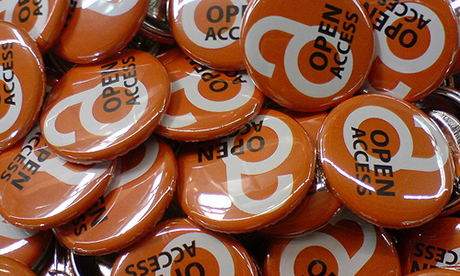
Image: h_pample [CC BY-SA 2.0], via Flickr
A primer on the much-debated open access initiative as Horizon Europe kicks off
Years—and much debate—in the making, the Plan S open access initiative is now being put into place. The funders who have signed up to the initiative are moving towards their goal of having scientific publications based on any research they fund made immediately available and free to read.
For those researchers who, perhaps wisely, did not follow the debates and politicking that led to the creation of Plan S, this short guide should hopefully bring you up to speed.
What is Plan S?
In the words of Coalition S—the international consortium of research organisations promoting the plan—it “requires that, from 2021, scientific publications that result from research funded by public grants must be published in compliant Open Access journals or platforms”. The plan’s goal and 10 principles can be read here.
The initiative, announced in 2018, has proven controversial, with several publishers voicing concern about how it could affect their income and thus survival. But Plan S has already had a major impact, prompting publishers large and small to change their policies so researchers wishing to publish in their journals can be compliant.
For compliance, journals will have to meet requirements including on copyright and licensing to gain the stamp of approval from Coalition S. How compliance will be encouraged, monitored and enforced is still subject to discussion. The Plan S principles do however include mention of “incentives to establish and support…high-quality open-access journals or platforms [in cases when they] do not yet exist”.
Who’s on board?
At present, those who have signed up to Plan S include the European Commission, the World Health Organization, 17 national mostly European funders and five charitable funders—including the Wellcome Trust and Bill and Melinda Gates Foundation.
And Plan S is still growing. In October 2020 the Howard Hughes Medical Institute, the largest private biomedical research institution in the United States, with more than 2,300 employees and an annual research spend of more than $750 million, announced its support. Its rationale for joining is typical of Coalition S signatories, and gives an idea as to why funders consider Plan S so vital to science.
In the words of the institute’s president Erin O’Shea: “Science is critically dependent on access to the information, data and ideas contained in published primary research articles. We believe we can best advance HHMI’s mission, including the discovery and sharing of new scientific knowledge, by sharing new science freely and immediately.”
It is also worth noting that the Plan S goal of being in place “from 2021” allows some leeway for funders. Some require that from the start of the year papers from grantees are immediately open access while others make the rule apply only to researchers awarded grants from 2021 onwards. Check your national funder for details.
What changes for Horizon Europe applicants?
The European Commission supports Plan S and is a participant in its Coalition S group of funders behind the plan, and as such grantees of the EU’s 2021-27 R&D programme Horizon Europe will need to comply with Plan S. In practice, this means any research supported under Horizon Europe will need to be openly accessible immediately on publication, through a repository or on a publisher’s website. That will include books and monographs. And peer-reviewed publications in long-text formats should be published under a Creative Commons (CC BY) licence or similar (CC-BY NC/ND).
As for journals, grantees will not have to publish in uniquely open-access publications. Horizon Europe-funded researchers will still be able to publish in hybrid journals, which contain a mix of open access and subscription content. Horizon Europe will cover publishing fees for purely open-access publishing or in journals that have agreed to transition to become fully open access under terms set out by Plan S. But fees will not be covered for other journals, including those that intend to remain as hybrids.
Grantees can still publish in subscription journals as long as they make their accepted paper or version of record (the version actually published) openly available immediately in a repository.
Although Plan S only applies to peer-reviewed publications, Coalition S “strongly encourages” researchers to make their data and other research outputs “as open as possible and as closed as necessary”. The group also encourages sharing research results through preprints.
Accompanying the move to open access, researchers should also be aware that Horizon Europe will carry a strong focus on responsible research data management, in line with “FAIR principles” that promote findable, accessible, interoperable and reusable data.
Plan S will not alter anything for researchers funded under the EU’s previous R&D programme, Horizon 2020. They are still allowed a 6-month embargo on open access for papers in science, technology, engineering and maths and a 12-month period for papers in the social sciences and humanities. Under Horizon Europe however, there will be no embargo period.